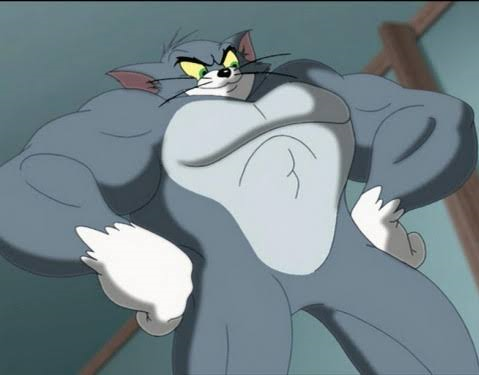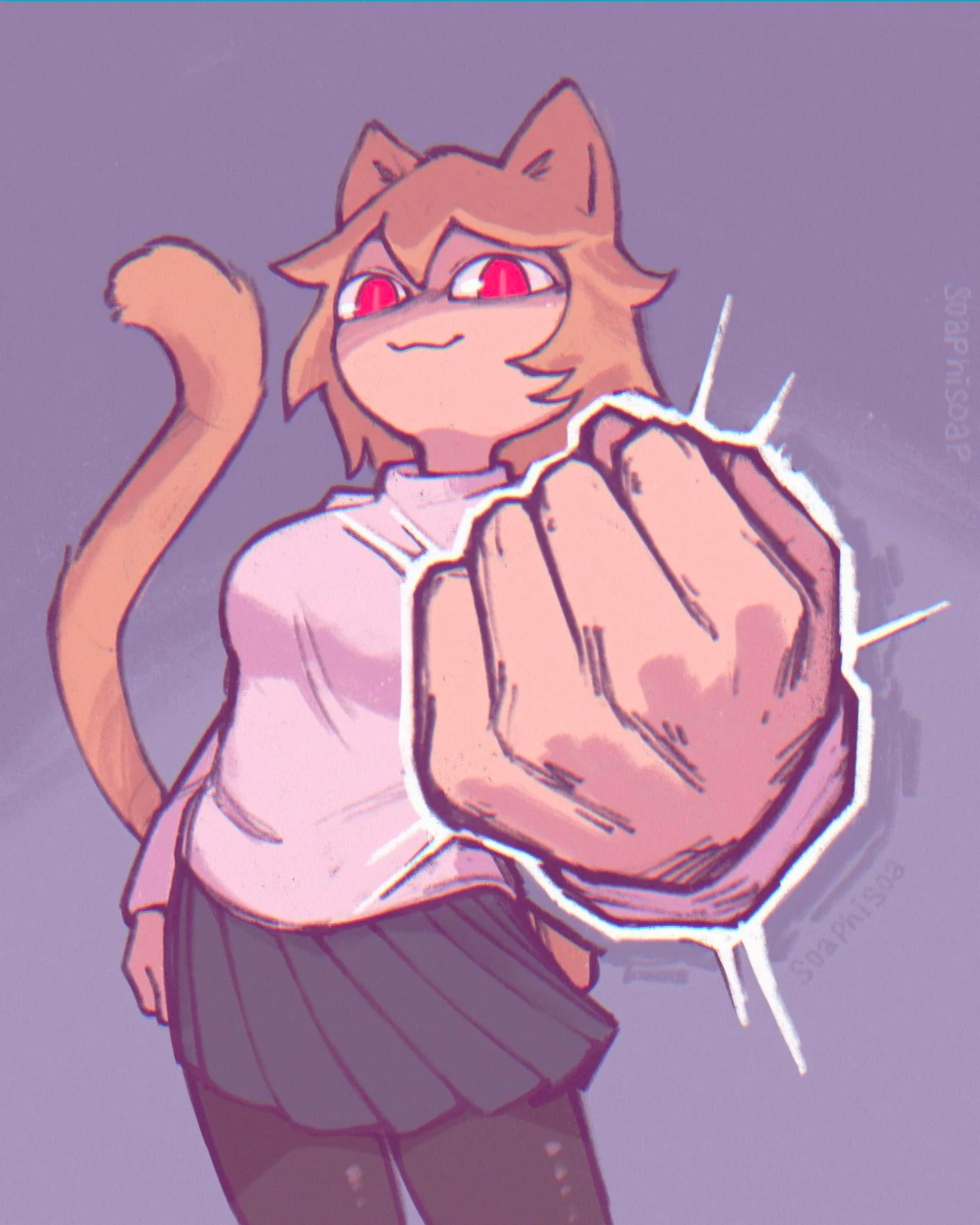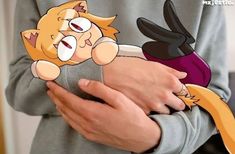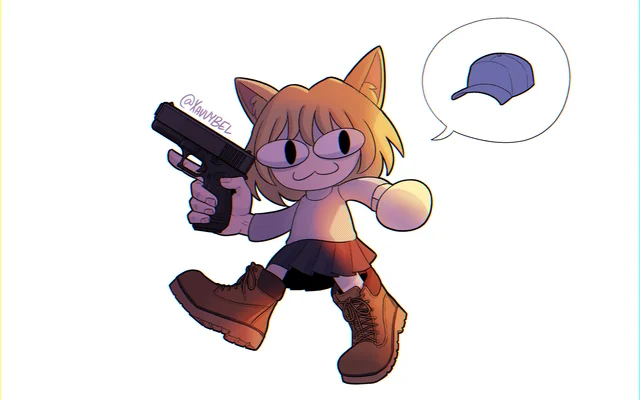TRPG Player Aims For The Strongest Build In Another World ~Mr. Henderson Preach the Gospel~ - Vol 2 Chapter 12
- Home
- All
- TRPG Player Aims For The Strongest Build In Another World ~Mr. Henderson Preach the Gospel~
- Vol 2 Chapter 12 - Childhood – Spring at Age Twelve ・Part 5
Vol 2 Chapter 12 – Childhood – Spring at Age Twelve ・Part 5
Putting our family’s princess to bed required an enormous effort.
Of course, that was to be expected. How could a seven‐year‐old child—whose emotional maturity was even less than her age—not be thrown into a fit when told that in just two or three days she would suddenly have to leave her parents’ side?
Admittedly, I was the one her little sister clung to most at home, but she loved everyone else, too.
Whenever Father picked her up and soothed her, Eliza’s face would burst into a radiant smile.
She adored Mother’s cooking so much that she would noisily insist on learning how to cook when she grew up.
She also loved being fussed over by her three older brothers—and at those moments, she would act just like a true princess.
And she even adored our newly arrived, kind step-sister. Although our home had been filled mostly with men until then, having another woman around to play with her hair between chores filled her with immense delight.
No matter the reason, she would never willingly agree to be separated from such a family.
Not that she would simply accept it with a casual remark—after all, she’s just a child.
No matter how much I reassured her that I would be there, or how we all pleaded that it was for her own good, Eliza threw a tantrum—screaming and crying without end. It wasn’t until well past midnight, when she had finally exhausted her energy, that she managed to fall asleep.
But this was sure to cause a commotion again come morning.
Our family—fresh from an epic battle that, if we lived in an apartment, would have drawn plenty of complaints—was utterly exhausted. My older brother and his wife dragged themselves away, while the second brother and third son, looking like the living dead, headed for their rooms. And judging by their absence, Mother—who had taken Eliza to bed—must have completely collapsed as well.
Now, only Father and I remained in the living room.
“…Would you like something to drink, Father?”
“…Ah, yes… Bring me the reserved bottle from the water vendor.”
I had asked Father, who was slouched in his chair as if he’d thrown his whole body onto it, and he made that request.
Our family’s prized treasure—a distilled spirit made from rye, beloved in the northern empire, which Father kept hidden behind a secret lid in the cupboard (he confided it to me, since I had no fear of misappropriation)—was something I carefully retrieved from its swaying transparent glass bottle. By now, I had hardly been surprised by relics whose historical details no longer added up.
It was clearly not a cheap commodity. When I offered him the bottle, which was about one-third full, Father downed it in one gulp without even bothering to pour it into a small glass.
Even though its aroma testified to its potency, he handled it with ease.
“Erich, will you have some too?”
In the small glass he offered, a liquor with a faint amber hue swirled. The sharp alcoholic aroma was clearly not suited to the palate of a twelve-year-old, and under ordinary circumstances, I would have hesitated… But I was certainly in the mood to drink as well.
After a single gulp, the drink’s searing warmth and surprisingly smooth taste slid down into my stomach. The lingering tang left a distinctive, not unpleasant aftertaste—a flavor that might be savored even more once my palate matured further.
“Nice drinkin’—just like my own kid,” Father said with a laugh, and downed another cup with the same vigorous gusto. Still, since it was a strong liquor, it would have been better with a bite. I retrieved some dried meat from the remnants of winter, which Father accepted without a word and proceeded to slice with his knife and eat.
“…Who would have thought it would come to this? Such is the nature of fate.”
Perhaps the alcohol had lubricated his tongue, for Father’s mouth began moving smoothly. After downing his third drink, he met my gaze, hesitated briefly as his lips twitched, and then quietly began to speak.
“I never told you this before—but the truth is, I was the second son.”
“…Is that so?”
It was the first time I had heard it. Both my grandfather and grandmother had passed away before I was born, and even Heinz—the only relative I had ever met—was too young to remember, so I’d never had a chance to hear such a tale. None of our relatives at the manor ever bothered mentioning it, nor did the uncles who became adopted sons or the aunts who married out.
“Ah, my eldest brother was—uh, eighteen, right?”
“No, even if you ask me…”
Perhaps the fine details had evaporated from his slightly muddled head, but after babbling something foolish, Father simply nodded in self-satisfaction as if to say, “Ah, yes, yes, he was eighteen.”
Apparently, before I was born, the uncle who was like an elder brother had passed away along with his wife due to an epidemic. Then Father—the second son who had been working away from home—was urgently recalled to inherit the manor.
Maybe shocked by Uncle’s passing, my grandparents deteriorated swiftly and departed just before my twin brothers were born. As a result, only our immediate family remained.
“That’s why I, too, understand the anguish of having to give up on what I truly wanted to do for unreasonable reasons.”
Father mumbled something, as if gnawing on an unspoken truth, and insisted that I finish my drink.
I suppose so. Even Father had his childhood—and a time as a boy and young man chasing dreams. The fact that he, as the second son, wasn’t consigned to a life confined to his room means something must have compelled him to leave home, almost in a runaway fashion.
“You see, I was a mercenary.”
“Eh? Father, you were a mercenary…!?”
“Yeah. I fought in seven major battles and fifteen skirmishes over three years—I even took down about two heads—and I was raking in bounties. Some of the money for buying farmland expansion rights from the magistrate came from that time, and the holster I got was through those very connections.”
Today was truly an intense day—so many things I never knew about came crashing over me like a tidal wave.
My little sister is actually half-fairy, and our childhood friends—who once practically knocked holes in Father’s ears—had thought him a model farmer. And now, to learn he was once a mercenary? Give me a break; my brain is about to shut down from overload.
But still… when a weakened father comes crying to you, you just can’t be tough with him. That hand—which once swung so hard it must have hurt—now looked all softened…
I felt that Father, with a distant look in his eyes, was surely recalling the hand of his withered grandfather—the very hand that led him to lay down his sword. Somehow, I understood why a mercenary’s arm, which had once overpowered so many, would eventually falter before the hand of a feeble farmer.
“I never in my wildest dreams thought I’d have you do something like what I did.”
Surely, Father had his own inner conflicts. In this era, mercenaries are as savage as if they were kin to bandits, yet they’re also highly organized professionals of war—almost a semi-regular army filling the gap left by dedicated soldiers. If adventurers assume they operate in small groups, then these mercenaries, who function as cohesive units in tightly packed military formations, would naturally have forged strong bonds with their comrades on the battlefield.
One can only imagine the agony of returning to one’s hometown under such circumstances. Perhaps overwhelmed by nostalgia—or maybe simply by the sight of Father returning with his roughened tone—I understood all too well.
But even so…
“…I, for one, don’t think so.”
“Huh?”
My resolve remains exactly as I told Margit: I will become what I want to be. Being a cool big brother to Eliza is not something I will ever abandon.
“I am Eliza’s big brother. Isn’t it every older brother’s greatest desire to be cool for his little sister and protect her?”
Laughing, I swiped the dangerously bottomless cup from Father, emptied its contents into my stomach, and finished it. If an older brother’s true wish is to be cool for his sister, then caring for Father is a child’s heartfelt duty.
“Heh, so to you, being cool is what it’s all about, huh?”
“Yeah, that’s right. And after being cool, I’ll do what I want to do. I’ll show you.”
“Hahaha, I see, I see.”
After a while of happily chatting, Father suddenly stood up, told us to wait a moment, and disappeared from the living room. Judging by our well-honed “listening ears,” he’d headed toward the basement storage room.
After enough time had passed for the soup to cool, Father returned carrying a dirt-stained bag. Since the floor of the storage room was bare earth, he must have dug something up.
“Here, I’ll give you this. I was planning to give it to you when you struck out on your own, but I reckon you’re not too young for it anymore.”
From the bag he produced a single sword wrapped in oiled paper. Its fittings had been removed, and it had been carefully oiled and treated to prevent rust—a typical Western-style sword in the form one would immediately picture. Simple in design yet reflecting the candlelight, it bore the proud presence of an arming sword.
“This is what I used before I quit. I sold off my spears, shields, and armor for money, but this here is a trophy I won from taking a head—I couldn’t bear to part with it.”
He joked that it could have fetched a tidy sum if sold, yet the careful way he wiped the oil from the sword with a rag revealed his delight. Moreover, it had been so meticulously stored that not a trace of oxidation could be found. The fact that he had oiled it and even buried it in the earth—keeping it away from oxygen—spoke volumes of his deep attachment.
“It might not be as great as a divine-silver sword or a magic sword, but it’s quite a fine piece. I’m not an expert, but according to Master Smith, it was made using pattern welding—a superior technique.”
At the time, I didn’t know this, but I later learned that pattern welding refers to a technique of forging a laminated structure with multiple materials. Much like Japanese swords, where the core and outer metals differ, it results in a blade that is resilient, less prone to bending, and exceptionally sharp.
“Back then, you looked as if you wanted to say, ‘You idiot father,’ but I was really happy, you know.”
That “back then” refers to when he performed that display sword cutting at the autumn festival. Casually tossing out what amounted to a fortune of one dracma as a celebration seemed, to my young ears, nothing short of reckless—but I suppose if my son, who made his living through martial prowess, were to leave behind heroic tales recounted at the manor for generations, I could understand being overcome with joy.
“That’s why I got a little carried away and splurged. Well, not that I regretted it or anything.”
He spoke so proudly and cheerfully about himself that, out of embarrassment, I averted my eyes from Father’s face—now adorned with a faint yet unmistakably mature smile. I felt as though if I looked any longer, I might start crying.
“So, this is yours.”
After wiping off the oil from the sword, Father handed it to me.
On the blade, from which the fittings had been removed, was an engraved mark resembling the profile of a wolf. It was worn and hard to read, but the inscription was…
“…Okuri Wolf Schuhts Wolf?”
“Yeah, they say it was the name of a strange apparition that used to roam at night.”
The tale Father recounted was something I had heard bits of before—a wolf that prowls the night roads, which would devour anyone who committed an offense on the spot, yet would guide those who showed proper respect or were weak—a mysterious apparition. This sword was likely forged in its likeness, imbued with a wish to return its bearer to those who await them.
…Well, in the end, it came to rest in my hands, which is a bit disappointing.
But one thing was certain: it was a fine sword. Even without its fittings, its center of gravity was perfectly balanced, and it wasn’t just light—it had an “easy-to-use lightness” that was immediately apparent. A sword is meant to use its weight and speed to cut through things, and in that regard, this was an excellent piece. I even felt that with this sword, I could cut through a full divine-silver helmet.
“I entrust this to you. Make sure to protect Eliza well, big brother.”
Finally, Father said that, carefully replaced the stopper on his drink, and quietly returned it to its hidden place.
“…Yes.”
And so, I bowed deeply to Father, who grumbled about having drunk too much as he made his way to his bed…
【Tips】There are three types of magic swords: one that is of superior quality—with high hardness and toughness, its purity enhanced by magic in a process known as magical forging; another that is continuously enhanced by magic; and finally, one in which the very concept of a “sword” or “slash” is quasi-materially manifested by magic. In general, magic swords are recognized as possessing either the first or second qualities or sometimes both.
Before me stands a makeshift target—a wooden torso clad in an old, useless suit of armor that the neighborhood patrol had long since worn out in practice.
The scale armor, assembled from layered small plates and smeared with dried bloodstains, suggests that it was probably left behind by some unknown person who dared to meddle with this manor. At this point, its origin is irrelevant.
All that is certain is the robustness of the wooden torso and that the armor itself still retains a measure of durability.
But that alone was more than enough.
“After all, no human can be tougher than wood clad in armor.”
“Heh…!”
Without shouting or leaping, I swung my sword swiftly and fluidly. I didn’t rely solely on my arms; I swung the sword with my chest and legs. When my entire body moved in unison—flesh pressing firmly against the ground and the blade’s path taking shape—the sword I brought down became a solid weapon, as if supported by the earth itself.
Thus, even the sword wielded by a mere twelve-year-old is more than sufficient to cleave through armor.
The sword slid cleanly past the target. Without any awkward resistance or lingering numbness, I could only feel that it was a perfectly executed, decisive strike.
Then, as if pushed by a gentle breeze and only just noticed, the temporary target split cleanly in half right down the center.
“Incredible!?”
Indeed, that’s exactly how it should be. With a well-crafted sword in hand and by adhering to the basics, cutting a man in two is a simple matter.
With four years of relentless training in “Battlefield Swordsmanship” refined to perfection, and with every support trait and skill I have accumulated, it’s only natural. While humility is important, I will never say that I am “weak,” even as I acknowledge my own inexperience.
Moreover, with an edge like this, it’s a fact that lightly armored humans stand no chance.
“Geez… you’re really not some incarnation of a martial god, are you…?”
Smith Oyakata—who had accompanied me to inspect both the condition of my equipment and my swordsmanship—uttered that in an astonished, dazed tone. Normally, even a masterfully crafted weapon wouldn’t be able to sever an entire suit of armor, or rather, “cannot” do so; so his surprise was only natural.
“Not at all. I am Erich. I’m the fourth son of Johannes, the farmer of Königsstuhl Manor.”
Smiling, I returned my sword to its sheath. Despite the urgency of the task, the quality of the weapon Father had asked me to prepare was, as expected, commensurate with Smith Oyakata’s standards. The re-sharpened blade clung to neither a scrap of paper nor a fragment of wood, and the sheath fit as though it were made for it.
I felt an exhilarating sense of satisfaction.
Now, tomorrow I am to set out. I must go soothe the princess who is still bawling…
【Tips】A sword wielded with skill can cut down any obstacle.

































